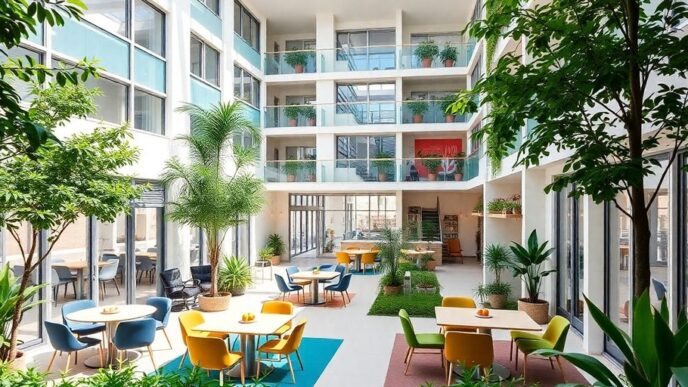Portugal has decided to reintroduce tax breaks for foreign workers, aiming to attract digital nomads and skilled professionals. This move comes after the country had previously scrapped these incentives, labeling them a "fiscal injustice." The new legislation is part of a broader strategy to stimulate the economy and attract talent.
Key Takeaways
- Portugal is reintroducing a 20% flat tax rate for foreign workers in high-value jobs.
- The tax breaks will apply to salaries and professional income but exclude dividends, capital gains, and pensions.
- The move aims to attract skilled professionals and digital nomads, not retirees.
- The country is also making changes to its immigration policies to be more selective.
Background
Portugal has had a fluctuating relationship with foreign workers. The country initially introduced tax breaks to attract skilled professionals after the global financial crisis in 2009. However, these were scrapped in October last year by then-Prime Minister António Costa, who called them a "fiscal injustice." The removal of these tax breaks was expected to deter high-skilled foreigners from migrating to Portugal due to higher income taxes.
New Legislation
Prime Minister Joaquim Miranda Sarmento announced that the center-right government would bring legislation to reintroduce the 20% flat tax rate for foreign workers in high-value jobs such as doctors, tech workers, and journalists. This tax rate will apply only to salaries and professional income, excluding other forms of income like dividends, capital gains, and pensions.
Economic Impact
The reintroduction of tax breaks is part of a broader legislative effort to stimulate Portugal’s economy. The government aims to attract individuals focused on innovation, entrepreneurship, and education. These individuals are expected to start companies, create intellectual property, and employ and educate future talent in Portugal.
Opposition and Concerns
Opponents argue that the influx of high-income foreigners has driven up the cost of living and housing prices, making it difficult for local residents. The previous government had also made changes to the "Golden Visa" program, which allowed foreigners to gain residency by buying property worth at least €500,000. This avenue was scrapped, leaving only higher investment options for prospective residents.
Demographic Challenges
Portugal is facing a demographic crisis with an aging population. The country has been known as one of the most migrant-friendly nations in the EU but is becoming more selective under its current right-leaning government. In June, Portugal announced it would scrap its "manifestation of interest" immigration clause, which allowed non-EU citizens to come to the country without a guaranteed job and apply for residency after a year of making social security payments. This change appears to target lower-income migrants from countries like India, Nepal, and Bangladesh.
Future Outlook
The government hopes that the combination of the reintroduced tax breaks, the Golden Visa program, and other working visas will attract skilled professionals who can contribute to the economy. The ultimate goal is to create a flourishing economy, expand the tax base, and support Portugal’s societal ambitions and aging population.
For more details, you can read the full article on Fortune.













